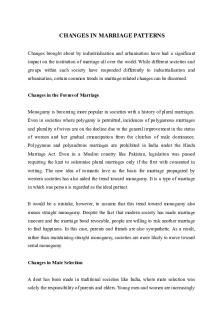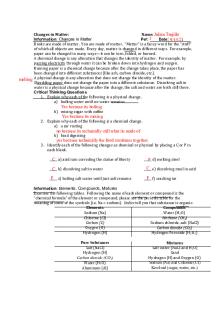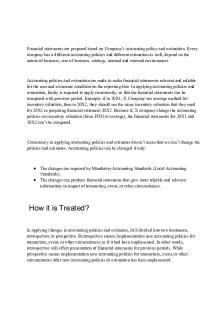IAS 8 Prospective or Retrospective in Changes in Accounting Policies and Estimates PDF

| Title | IAS 8 Prospective or Retrospective in Changes in Accounting Policies and Estimates |
|---|---|
| Author | Nourin oishee |
| Course | Audit |
| Institution | Bangladesh University of Professionals |
| Pages | 2 |
| File Size | 60.2 KB |
| File Type | |
| Total Downloads | 46 |
| Total Views | 134 |
Summary
IAS 8
retrospective and prospective changes...
Description
Financial statements are prepared based on Company’s accounting policy and estimation. Every company has a different accounting policies and different estimation as well, depend on the nature of business, size of business, strategy, internal and external environment.
Accounting policies and estimation are made to make financial statements relevant and reliable for the user and economic condition on the reporting date. In applying accounting policies and estimation, Entity is required to apply consistently, so that the financial statements can be compared with previous period. Example: if in 20X1, X Company use average method for inventory valuation, then in 20X2, they should use the same inventory valuation that they used for 20X1 in preparing financial statement 20X2. Because if, X company change the accounting policies on inventory valuation (from FIFO to average), the financial statements for 20X1 and 20X2 can’t be compared.
Consistency in applying accounting policies and estimates doesn’t mean that we can’t change the policies and estimates. Accounting policies can be changed if only:
● The changes are required by Mandatory Accounting Standards (Local Accounting Standards). ● The changes can produce financial statements that give more reliable and relevant information on impact of transaction, event, or other circumstances.
How it is Treated? In applying changes in accounting policies and estimates, IAS divided into two treatments, retrospective or prospective. Retrospective means Implementation new accounting policies for transaction, event, or other circumstances as if it had been implemented. In other words, retrospective will effect presentation of financial statements for previous periods. While prospective means implementation new accounting policies for transaction, event, or other circumstances after new accounting policies or estimation has been implemented.
Prospective or Retrospective Implementation? When prospective or retrospective implementation should be applied? ● Retrospective implementation should be applied if the new accounting standards or policies are required by mandatory accounting standards and the changes can produce financial statements that give more reliable and relevant information on impact of transaction, event, or other circumstances. In the example above, if X company in 20X2 changes the inventory valuation method from FIFO to average, so that new accounting policies should be applied retrospectively. Then, the financial statements of X company for 20X1 should be restated. And Errors may arise from mistakes and oversights or misinterpretation of information. Material prior- period errors are adjusted retrospectively (that is, by restating comparative figures) unless this is impracticable. ● Prospective implementation should be applied if there is changes in accounting estimation....
Similar Free PDFs

Changes IN Marriage Patterns
- 4 Pages

Changes in Matter
- 4 Pages

Changes in the land
- 2 Pages

Statement of Changes in Equity
- 2 Pages

Accounting Changes
- 43 Pages

Nomenclatura in-or
- 36 Pages

Session 4 Changes in PPC
- 6 Pages
Popular Institutions
- Tinajero National High School - Annex
- Politeknik Caltex Riau
- Yokohama City University
- SGT University
- University of Al-Qadisiyah
- Divine Word College of Vigan
- Techniek College Rotterdam
- Universidade de Santiago
- Universiti Teknologi MARA Cawangan Johor Kampus Pasir Gudang
- Poltekkes Kemenkes Yogyakarta
- Baguio City National High School
- Colegio san marcos
- preparatoria uno
- Centro de Bachillerato Tecnológico Industrial y de Servicios No. 107
- Dalian Maritime University
- Quang Trung Secondary School
- Colegio Tecnológico en Informática
- Corporación Regional de Educación Superior
- Grupo CEDVA
- Dar Al Uloom University
- Centro de Estudios Preuniversitarios de la Universidad Nacional de Ingeniería
- 上智大学
- Aakash International School, Nuna Majara
- San Felipe Neri Catholic School
- Kang Chiao International School - New Taipei City
- Misamis Occidental National High School
- Institución Educativa Escuela Normal Juan Ladrilleros
- Kolehiyo ng Pantukan
- Batanes State College
- Instituto Continental
- Sekolah Menengah Kejuruan Kesehatan Kaltara (Tarakan)
- Colegio de La Inmaculada Concepcion - Cebu








